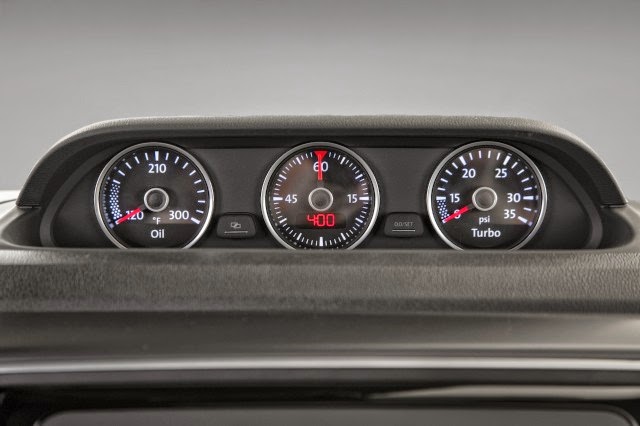 2015 Volkswagen Beetle
2015 Volkswagen Beetle
Now
three years into its current body style, the Volkswagen Beetle has
broadened its appeal to a wider swath of drivers. The two-door coupe or
convertible isn’t as cutesy as it was in the 2000s; instead, it’s grown
into a more substantial, sportier vehicle, not unlikely the early Bugs
in their heyday.
- Interior / Exterior »
The
current Beetle is finally designed in a way that could be considered
gender-neutral, which is a welcome change from the overtly feminine last
generation “New” Beetle.



For
those with a taste for the look of the Beetle in the 1950s, 1960s, or
1970s, Volkswagen has some ready-made trim lines to evoke the spirit of
each decade. The ’50s model in particular is compellingly simple and
clean in its aesthetic.

However you care to draw the lines, however, the lines of the Beetle itself are clearly attractive. Simple, straightforward, with a classic quality that hints at future timelessness, the Beetle’s flattened arches and subtle flares could only fit one car. The interior of the Beetle is simple and useful, a nod to its classic predecessor, while incorporating all of the modern digital tech you’d want.
By the way, if you’re looking for the kitschy bud vase that christened the New Beetle back in the early 1990s, don’t. It’s been ditched in this generation as a sign of the old times.
- Performance »
The
2015 VW Beetle is offered in flavors ranging from torquey and efficient
to nearly sporty, striking a balance between performance and frugality
with relative success.


With
a new engine this year, the Beetle TDI now produces 150 horsepower, and
earns as much as 3-mpg better on the highway. It’s the most efficient
Beetle in the lineup. You might think it’s the slowest of the bunch, but
you’d be surprised by its relative performance thanks to its torquey
diesel engine. A shorter rev range and slight lag from the 2.0-liter
turbodiesel four-cylinder are overcome by the torque of the diesel,
making third gear a highly tractable back-road companion.
Step up
to the Beetle R-Line, and you’ll get a 210-horsepower, 207-pound-foot
2.0-liter turbocharged four-cylinder. The extra power gives the R-Line
noticeable pep and passing ability, but it still isn’t quite what you’d
call quick, despite the relatively light 3,042-pound curb weight of the
manual-equipped car.The base engine is a 1.8-liter turbocharged four-cylinder, also rated at 170 horsepower, but with 16 percent greater efficiency than the old 2.5-liter five-cylinder model. Slightly greater torque, available at lower rpm, improves this driving experience vastly over the old, pokey 2.5-liter in-line five. The turbo four is smooth, swift–exactly as punchy as a Beetle should be at its base line.
In either form, the Beetle is comfortable and somewhat softly sprung under normal conditions, but manages to corner well, with no undue body roll in more spirited outings. Thanks goes there to the independent suspension now factored into all Beetles, an upgrade in the most recent iteration. None of the controls–steering and brakes especially–offer much in the way of communication with the driver, however.

Convertible models are a bit less rigid and a touch heavier, but the experience isn’t significantly changed–unless you put the top down. Then the Beetle’s easy-going attitude makes even more sense.
Whichever Beetle you’re after, they share a common sense of fun and simplicity behind the wheel that’s refreshing–even when packing a turbocharger and a dual-clutch transmission.
Comfortable
and spacious (up front), though not all that quiet, the 2015 VW
Beetle’s cabin is well-laid out and handsome. Passengers up front have
plenty of leg, head, and hip room in both the coupe and convertible. In
hardtops, trunk space is pretty good. Even in convertibles, not much
space is lost to the collapsible wind deflector stowed against the top
of the trunk.

USB, Bluetooth, and upgradeable audio systems are available in all Beetle models, while special themed trim lines offers the styles of the 1950s, 1960s, and 1970s, both inside and out. Available tech and equipment upgrades include navigation, a sunroof (coupe models), and VW’s new Car-Net connectivity system.
Wanting to draw in more male buyers, the Beetle’s look has grown more masculine, especially with the lower, flatter roofline and more upright windshield. At the same time, it’s modern, but not in a trendy way. This shape, with its simple but shapely details, should hold up over the years. Inside, the design clean and flowing, with rounded rectangles and circles the major themes. Controls are simple, both on the wheel and in the center stack.

Volkswagen replaced its 2.5-liter five-cylinder with a 1.8-liter turbocharged four-cylinder, and for 2015, the TDI engine has been updated, too. VW rates the new 1.8-liter turbo at 170 horsepower as well. The new turbo four-cylinder boosts gas mileage by 16 percent, however, according to VW. For the best mileage, there’s the Beetle TDI Clean Diesel (yes, that’s its full name), scoring 28 and 41 mpg city/highway.

For those who like a little more punch, the Beetle R-Line offers 210 horsepower from a 2.0-liter turbocharged four-cylinder engine. The R-Line replaced the Beetle Turbo in the 2014 model year. Most Beetles are available with a choice of five- or six-speed manual or six-speed automatic or dual-clutch automatic transmissions.
New for 2015, Volkswagen adds the “Classic” trim to the Beetle lineup. It gives the Beetle and Beetle convertible front lumbar supports; leather-wrapped steering wheel, shift knob and parking brake; three-color ambient lighting; upgraded navigation; and a six-speed automatic transmission.
0 Response to "2015 Volkswagen Beetle"
Post a Comment